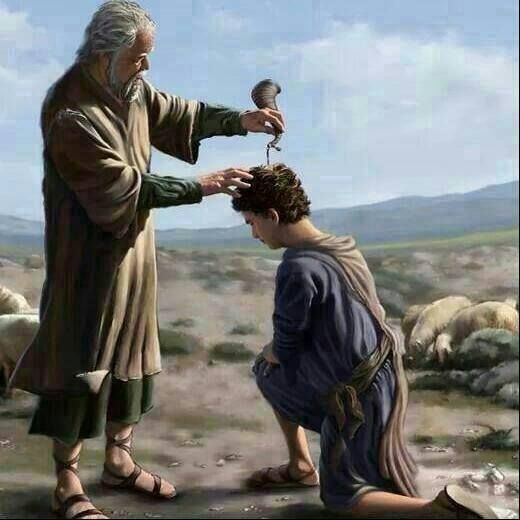The Power of Touch
Many experience healing when we lay our hands on them and pray. Human hands have always been a major instrument of healing. Jesus said, “These signs will accompany those who believe; they will lay their hands on the sick, and they will recover,” (Mark 16:17-18). This ‘touch’ is not psychological but serves as a channel for the power of God to flow into others’ lives. “Then Jesus stretched out his hand, touched him, and said, ‘I do choose. Be made clean.’ Immediately the leprosy left him,” (Luke 5:13).
Prayer Without Touch

Many are healed when you pray for someone, even without touching them. This kind of healing also takes place. “When they had prayed, the place in which they were gathered together was shaken; and they were all filled with the Holy Spirit and spoke the word of God with boldness,” (Acts 4:31).
In many places in the book of Acts of the Apostles, the apostles laid their hands on others to fill them with the Holy Spirit. But here, while praying, there was an outpouring of the Holy Spirit. Similarly, when we pray, healing happens, whether the person is near or far off. We have witnessed these manifestations in numerous Bible Conventions, retreats, and prayer meetings. Healing can occur when we pray for individuals without touching them. Many receive healing when we command it to happen.
Healing Through Preaching
Many experience healing while the preaching of the Word takes place. In these times, more people are healed during preaching than through the touch of the hand. “He sent out his word and healed them and delivered them from destruction,” (Psalm 107:20). Whether there are 10 people or 1 million, the preaching of the Word causes healing. When there is a large gathering, this kind of healing anointing manifests, and many are healed in a short time. “And they went out and proclaimed the good news everywhere, while the Lord worked with them and confirmed the message by the signs that accompanied it,” (Mark 16:20).
Presence of Anointed Individuals

Healing can also occur when an anointed man or woman of God is present, and the power to heal is within them. “One day, while he was teaching, Pharisees and teachers of the law were sitting nearby (they had come from every village of Galilee and Judea and from Jerusalem); and the power of the Lord was with him to heal,” (Luke 5:17). The physical presence of the anointed creates miracles. Of course, it is the Holy Spirit behind the scene, not the person’s ability. “All in the crowd tried to touch him, for power came out from him and healed all of them,” (Luke 6:19).
The scripture tells us that the power of God flowed out from Jesus. This can happen in us also – when led by the Spirit of God, not grieving the Holy Spirit, and walking humbly in God’s and man’s presence. The physical presence of Peter caused miracles, leading people to come to him for healing. “They even carried out the sick into the streets and laid them on cots and mats so that Peter’s shadow might fall on some of them as he came by,” (Acts 5:15). Deliverance, inner healing, physical healing, etc., can occur in this manner. The presence of the anointed charges the atmosphere with power. “There was a man with an unclean spirit in their synagogue, and he cried out, ‘What have you to do with us, Jesus of Nazareth? Have you come to destroy us? I know who you are, the Holy One of God,” (Mark 1:23-24).
Healings can take place when we come in contact with articles used by anointed men and women of God. “They begged him to let them touch even the fringe of his cloak; and all who touched it were healed,” (Matthew 14:36). “God did extraordinary miracles through Paul, so that when handkerchiefs or aprons that had touched his skin were brought to the sick, their diseases left them, and the evil spirits came out of them,” (Acts 19:11-12).
The Catholic Church teaches about the relics of the saints of old. However, it is essential to understand that wood, metal, paper, cloth, or water does not heal per se. It is the power of the Holy Spirit manifesting through these things. So, due care must be taken not to give relics more importance than the Holy Spirit. “Elisha died, and they buried him. Bands of Moabites used to invade the land in the spring. A man was being buried, a marauding band was seen, and the man was thrown into Elisha’s grave; as soon as the man touched Elisha’s bones, he came to life and stood on his feet,” (2 Kings 13:20-21).
Healings take place when we follow the anointed instructions of the men and women of God. At times, it is crucial to follow these instructions. In the story of the ten lepers, healing occurred as they followed Jesus’ command. “…they called out, saying, ‘Jesus, Master, have mercy on us!’ When he saw them, he said, ‘Go and show yourselves to the priests.’ And as they went, they were made clean,” (Luke 17:13-14). In the story of Naaman, healing happened as he meticulously followed the prophet’s instructions. “He went down and immersed himself seven times in the Jordan, according to the word of the man of God; his flesh was restored like a young boy’s, and he was clean,” (2 Kings 5:14).
Many times, we miss healing because we do not follow the instruction attached to our healing given to us by the Holy Spirit through others. The Word of Wisdom for healing has the power to heal. Healings often occur when priests bless water or oil and pour it on us. “Samuel took the horn of oil and anointed him in the presence of his brothers; and the spirit of the LORD came mightily upon David from that day forward. Samuel then set out and went to Ramah,” (1 Samuel 16:13). “They cast out many demons and anointed with oil many who were sick and cured them,” (Mark 6:13). “Are any among you sick? They should call for the elders of the church and have them pray over them, anointing them with oil in the name of the Lord,” (James 5:14).
Blessed Water
The same applies to holy water. When the water is blessed by the man of God, the Holy Spirit’s power comes on the water, making it a great source of healing and deliverance. “When they came to Marah, they could not drink the water of Marah because it was bitter. That is why it was called Marah. The people complained against Moses, saying, ‘What shall we drink?’ He cried out to the LORD; the LORD showed him a piece of wood; he threw it into the water, and the water became sweet,” (Exodus 15:23-25).








